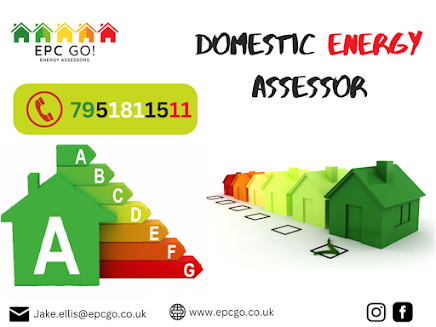How Valuable Is For Your Property To Have An EPC?
Anyone selling a home in the previous few years has been required to give an Energy Performance Certificate (EPC) to the new buyer. It's particularly useful in demonstrating to a prospective buyer how energy efficient the property is today and whether any adjustments, such as adding insulation, are required to increase efficiency. It is important to note, however, that the EPC should only be considered as a reference in terms of a home's energy performance. If you are looking for the best Energy Assessor Chelmsford expert in the UK, then go no other than EPC GO.
An EPC ranks a property based on its energy efficiency, with A being the best and so on. The certificate not only offers information on rankings and energy usage but also the energy assessor’s advice on how to improve the property's energy efficiency and lower energy bills. If you live in Scotland, you may be familiar with the EPC as part of a more comprehensive energy evaluation known as a 'house report,' which includes a property survey and questionnaire in addition to the EPC.
The Significance Of EPC
With so much emphasis in the UK now on energy efficiency, alternative energy, and waste reduction, many people have come to rely on a property's energy performance rating when considering buying a property. Of course, it is important to be aware of a house's efficiency before buying a property, but these are not set in stone, and other factors such as current energy bills and the number of residents are often overlooked when making an assessment. However, it is a useful document to highlight any inefficiencies and how you can fix them, including costs that could be negotiated within the agreed purchase price.
If you're planning to sell your home, it's a good idea to get an energy performance certificate if you don't already have one, otherwise, it can delay your potential buyers to purchasing your house. Especially if you are looking for a quick home sale, you must be asked at least as many people as want to see the information and recommendation areas identified by Domestic Energy Assessor. However, an Energy Assessor can only do certain things, so the information contained in the EPC should not be taken too seriously. For example, an assessor cannot drill into walls to determine the presence or condition of insulation, and therefore this information is often not completely accurate.
Wrapping
Up
Almost all properties are now required by law to have an energy performance certificate, with a few exceptions. For example, an EPC is not required for a listed building, as generally recommended improvements cannot be made to improve the property's energy efficiency as they are generally classed as prohibited structural changes. It's also worth noting that your EPC lasts ten years, meaning you don't need to get a new one every time you sell your home. If you are looking for the perfect Domestic Energy Assessor Southend option in the UK, then EPC GO is there for you.




Comments
Post a Comment